2022 Fall
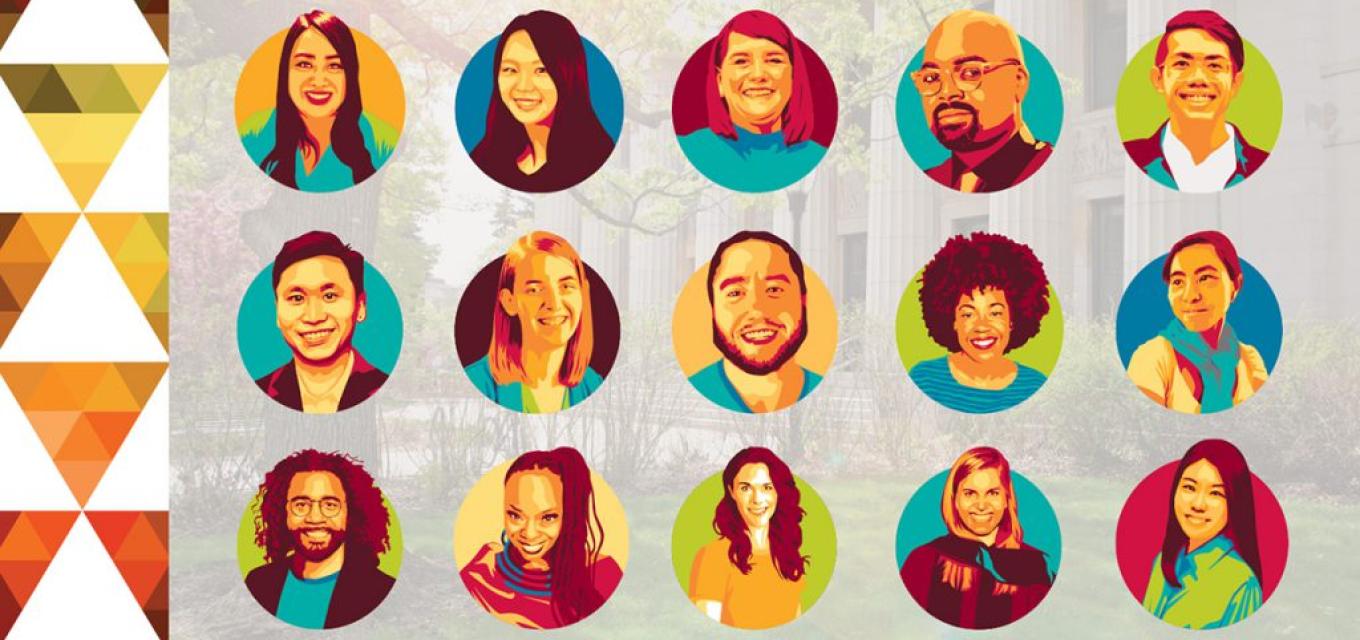
New faces on campus
CEHD is welcoming one of its largest cohorts of new faculty members beginning this fall. We are proud to introduce them and look forward to the insights and expertise they will bring to our college.
Department of Curriculum and Instruction
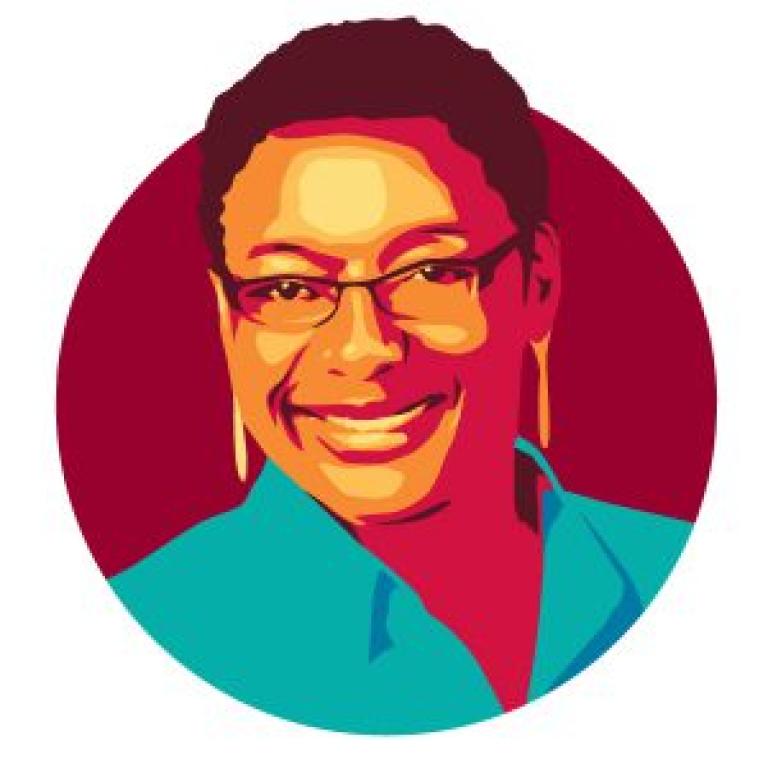 |
||
|
KEITHA-GAIL MARTIN-KERR |
RESEARCH INTERESTS: Understanding the lived experiences of people who are marginalized and oppressed
“My research interests live at the intersection of collective memory work, elementary education, teacher education, being Black, and living queerly,” she says.
“My work centers on resistance to normativity and anti-oppressive pedagogy. I enjoy thinking with theory around issues relating to equity and social justice.”
FUN FACT: What is the best piece of advice you’ve ever received?
Don’t listen to the noise in the market, watch your change.
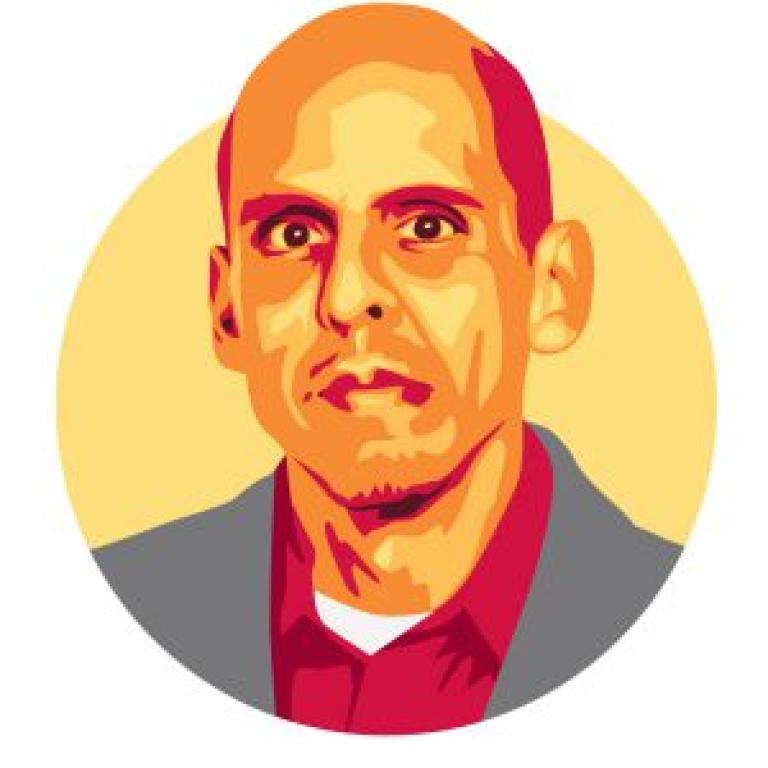 |
||
|
RAMON VASQUEZ |
RESEARCH INTERESTS: Social studies education, epistemology, curriculum theory, post-qualitative research, critical theories, and relational pedagogies
“My current research includes analyses of knowledge production as well as discussions of the ethics of memory work,” he says. “I am especially interested in uncovering and understanding schooling practices that recognize the different ways of knowing by which people make sense of the world and provide meaning to their lives.”
Vasquez is committed to working with faculty, staff, and students to develop a vision for the future that responds to the pressing social challenges of our time while also making space for different perspectives on shared issues of concern. “For this reason, my work centers collective well-being and honors accountability to various communities and collaborators across a range of sites,” he says. “An important aspect of my work involves bringing together an array of compelling ideas from different cultural and intellectual traditions. Exploring possibilities for knowledge production outside institutionally established ways of understanding the world creates possibilities for challenging entrenched views.”
FUN FACT: If you could invite any figure—living or dead—to dinner, who would it be and why?
When I was a doctoral student, I read Ruth Ozeki’s moving novel A Tale for the Time Being. A couple of years later, when I was living in Massachusetts for my first academic appointment, I ran into Ozeki in the lobby of my apartment building, and we talked about her experiences since her last novel. I was looking forward to another conversation with her to discuss her current work, but I moved to Michigan at the end of the semester. By now she has taught several courses at Smith and written so much more, so we would have much to discuss over dinner.
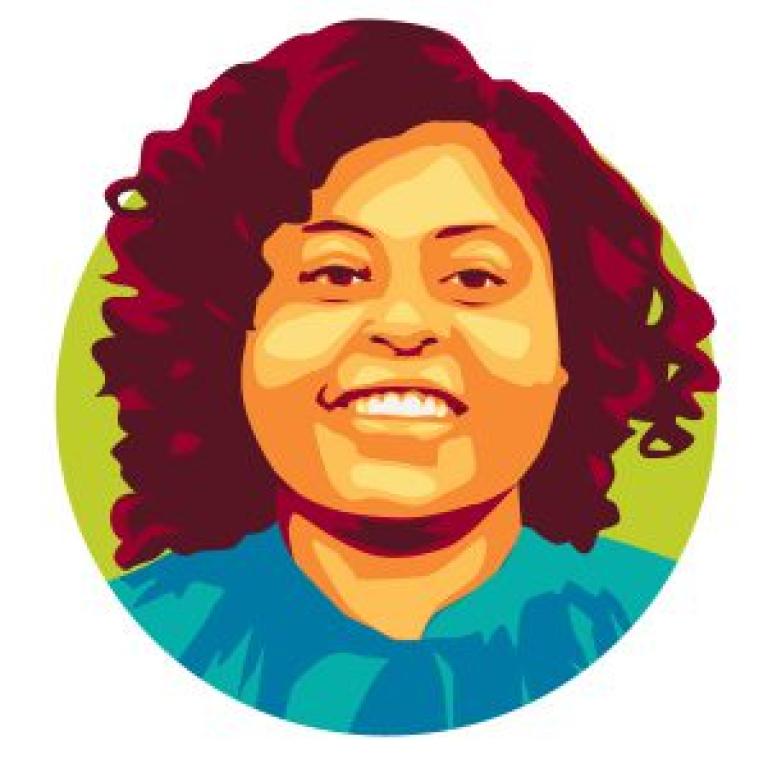 |
||
|
CRYSTAL WISE |
RESEARCH INTERESTS: Early literacy development, culturally responsive instruction, and historical and contemporary literacy practices of African Americans
“My current research in early literacy is focused on vocabulary instruction and assessment for children in the early elementary grades,” she says. “Continuing work I began at the University of Michigan, I am developing assessments and instructional approaches that focus on children’s use and development of word-learning strategies in culturally and linguistically responsive ways. I primarily do this work with African American children attending schools in lower socioeconomic status environments.”
Wise says children are fascinating learners. As a kindergarten and second-grade teacher in her hometown, Gary, Indiana, she enjoyed listening to children use language to create a vibrant and stimulating learning community.
“I was honored to engage in their inquiries about new words and things around them and to explore additional meanings of words they’d heard and knew something from prior experiences,” she says.
FUN FACT: What are you reading?
I am taking a deep dive into a set of children’s texts, including Each Kindness by Jacqueline Woodson, aimed at teaching about Martin Luther King’s philosophy on the beloved community for a critical content analysis project. I am also rereading a couple of James Baldwin’s essays alongside lyrics from Prince’s The Black Album for a manuscript about the responsibility of the artist.
Department of Educational Psychology
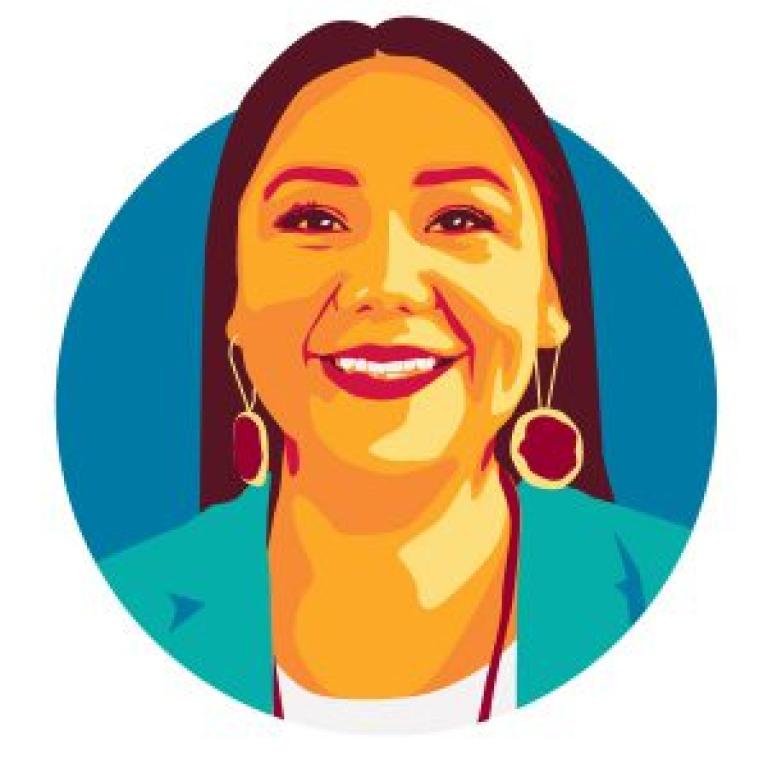 |
||
|
LISA AGUILAR |
RESEARCH INTERESTS: Indigenizing education, decolonizing school psychology, cultural identity, and cultural humility
“I am interested broadly in working with and for Indigenous students, families, and communities,” she says. “Within that broad spectrum, my goal is to decolonize how we think about the practice of school psychology and move more toward an Indigenization of the field and education as a whole. For me, this means that Indigenous knowledges, histories, stories, and ways of being would be integral to how we serve children and their families.”
As of late, she has been doing a lot of thinking and writing about strengths-based assessment and integrating story-telling into that process. She has recently submitted a grant with a group of scholars of color and women that focuses on creating Indigenous data storytellers, or Indigenous youth who are empowered to use “data” (i.e., stories, knowledges, observations, oral histories) in all its forms to protect and strengthen their community.
FUN FACT: If you could invite any figure—living or dead—to dinner, who would it be and why?
I would probably invite an ancestor who lived prior to colonization. I would be so curious to learn about how the world worked, what types of animals they had back then that we no longer have the privilege of being in relation with, what did the terrain look like, what customs have been lost that I could learn about again, and how it felt to live in those times. I dream about that a lot.
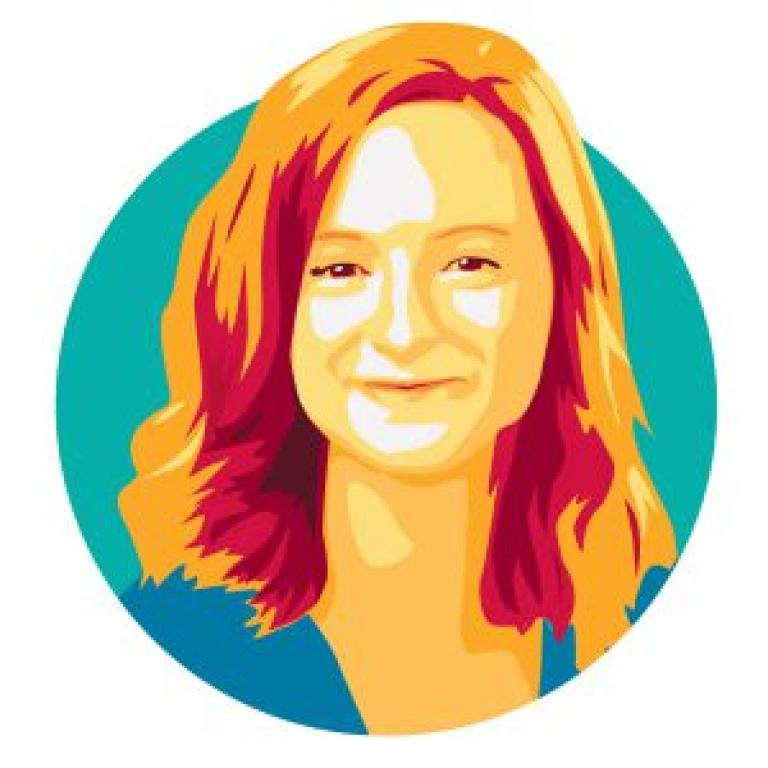 |
||
|
LAURA ALLEN |
RESEARCH INTERESTS: Understanding the cognitive processes in language comprehension, writing, knowledge acquisition, and conceptual change, and applying that understanding to practice by developing natural language processing tools and educational technologies
“I have always been fascinated by the way that humans translate their thoughts into language,” she says. “I am particularly intrigued by how we adapt our language based on our knowledge and expectations of others, as well as the ways we can learn about others based on the structure of their language.”
Allen is also passionate about interdisciplinary research—therefore, most of her research draws on work in linguistics, computer science, psychology, and education to attempt to develop a well-rounded view of language and discourse.
Her interest in language stems from the fact that since it is the primary way in which humans interact with each other, it is critical for better understanding how we can teach and learn from others.
FUN FACT: What is your favorite website?
My favorite website is probably Reddit, because you can find an answer to almost any question that you have and hear so many varied opinions on any topic.
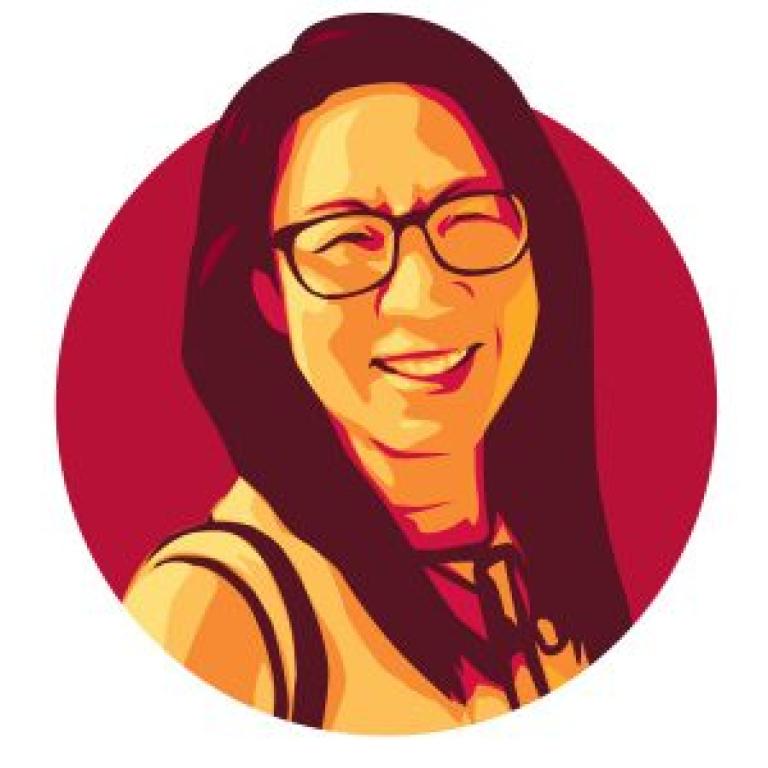 |
||
|
CHIA-YI CHIU |
RESEARCH INTERESTS: Developing new methods for cognitive diagnosis
Chiu has been recognized for her research on cognitive diagnosis.
“Traditional testing methods look at students’ overall ability and their standings,” Chiu says. “In contrast, cognitive diagnosis seeks to understand what students know and what they don’t know, so that teachers can design more suitable remediation instruction for the students
based on their needs.”
The idea of “testing for improving teaching and learning, but not just merely auditing it” is the reason why Chiu has been focusing on cognitive diagnosis for many years. “Many experts in the field agree that cognitive diagnosis analysis represents the future of educational assessment,” she says. “If not that of ability and achievement testing in its entirety, then at least that of educational program evaluation through the monitoring of students’ progress.”
Chiu says that, unfortunately, this type of analysis often relies on model-based calibrations, which require large samples and advanced techniques so as to identify the underlying model and estimate model parameters. For practitioners, who routinely have only small samples at hand, do not have access to information about the underlying model, and are frequently in need of expedited results, the contribution Chiu’s research that focuses on the development of methods suitable for the implementation into educational settings of any size cannot be overstated.
FUN FACT: What is the best piece of advice you ever received?
We are doing research in educational statistics and measurement, but keep in mind: no writing, no publications.
 |
||
|
NANA KIM |
RESEARCH INTERESTS: Developing and applying psychometric methods to improve measurement in education, psychology, and social sciences
“My current work focuses on item response theory (IRT) and its applications for detecting measurement bias and understanding individual differences by attending to response processes,” she says. “I am also interested in applying advanced statistical methods such as multilevel models to investigate practical issues in education and social sciences.”
Kim thinks it is essential for every student to have the opportunity to receive high-quality education to achieve one’s potential. “I care about the validity and fairness of assessments because their results are often used to inform educational policy and/or decision-making, consequently influencing the quality of education, educational opportunities for students, and the real-world practice of education,” she says. “Using inaccurate and potentially biased measures renders misleading conclusions and decisions.”
FUN FACT: What do you do in your down-time?
I enjoy camping at state parks, riding a bike, walking in nature, and spending time with family.
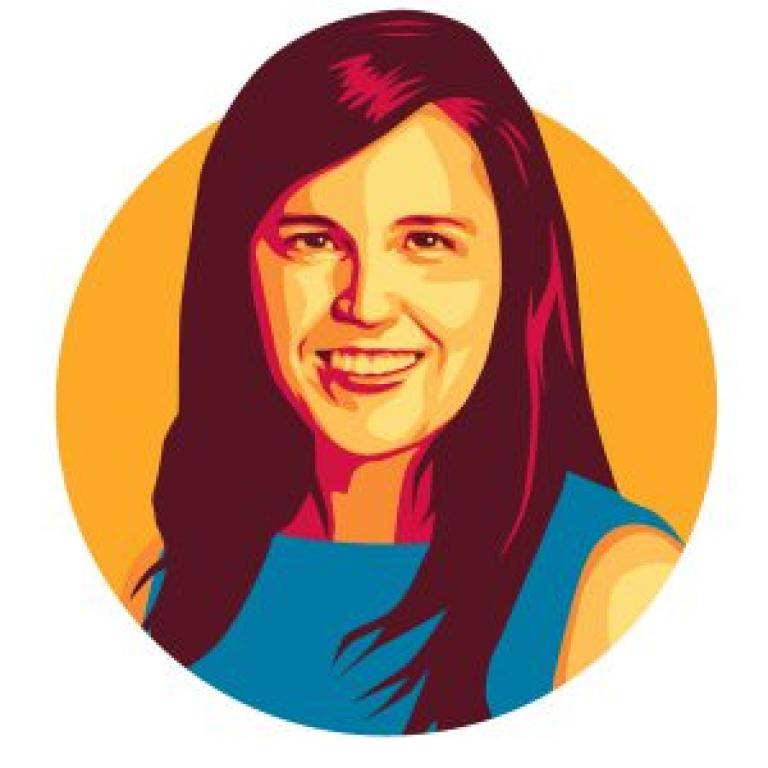 |
||
|
CHELSEY LEGACY |
RESEARCH INTERESTS: Teaching and learning statistics
“It’s no secret that we are flooded with data, and gaining insights from it is complicated but increasingly important for active citizenship in the modern world,” she says. “Given that most of this data is observational and contains many variables, it is important to know how to develop the skills needed to consider relationships among so many variables.”
Legacy says that using visualizations to see relationships among several variables is an engaging method to get students to start thinking that way. “Since visualizations are typically covered early in an introductory statistics course, they provide an entry point to start developing students’ confidence to ask questions, analyze, and communicate about data in their research and their own lives,” she says.
FUN FACT: What are you reading?
Having just defended my dissertation and needing a brain break, I returned to a book I didn’t get to finish last summer: Kate Morton’s The Clockmaker’s Daughter. Morton’s novels are always entrancing stories that swoop forward and backward in time with several interconnected plot lines revolving around a generation’s old family secret. This time I can’t stop reading until the mystery is solved.
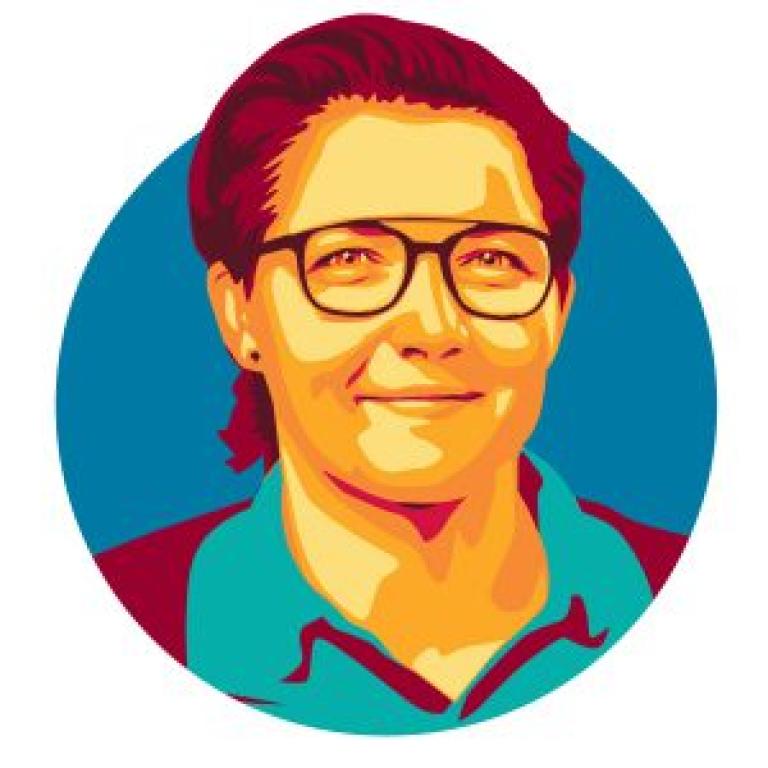 |
||
|
CAITLIN MILLS |
RESEARCH INTERESTS: Understanding how and why our minds wander and how that impacts our everyday life and learning process
“I am most interested in the way we think, particularly when we aren’t actually trying to think of anything in particular—or when our minds wander,” she says. “It happens quite often throughout our daily lives, and my research focuses on how those thoughts impact how we feel and how we learn. I am interested in blending approaches from psychology, computer science, and neuroscience to answer these questions.”
Mills says that we spend about half our lives mind wandering, regardless of where we are or what we are doing, according to some research. “Our mind really never stops ‘thinking,’ so I think it’s important to understand how these thoughts—that we often ignore in research—shapes our human experience,” she says.
FUN FACT: What’s the best piece of advice you’ve ever received?
The more you know, the more you realize you don’t know.
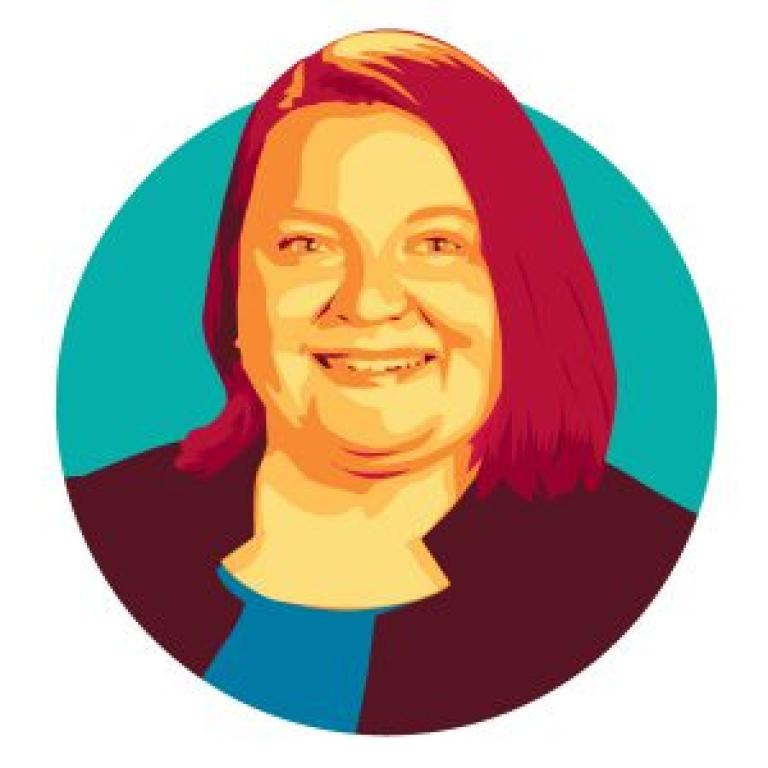 |
||
|
KIRSTEN NEWELL |
RESEARCH INTERESTS: Academic assessment of dual language learners within multitiered systems of support, and educators’ interpretation and use of data
In her school psychology master’s training program, Newell learned about early identification and early intervention for students who were struggling in school. “This type of academic assessment and data-based decision making can efficiently use school resources to prevent long-term academic difficulties,” she says. “Once I entered practice, I spent much of my time working with students in a reactionary way, when they were already failing, rather than using data-based decision making to identify instructional needs early. Especially for students learning in more than one language, accurate and efficient screening and monitoring of academic skills was neither well implemented nor well understood.”
Now, Newell is working to create research partnerships to simultaneously support schools while building research evidence on accurate and efficient assessment of bilingual learners. “For example, can we use curriculum-based measures like oral reading fluency to accurately identify bilingual learners who need additional reading supports?” she asks.
FUN FACT: What do you do in your downtime?
I enjoy family time with my spouse and two children: traveling to state and national parks and playing all manner of games along the way.
Department of Family Social Science
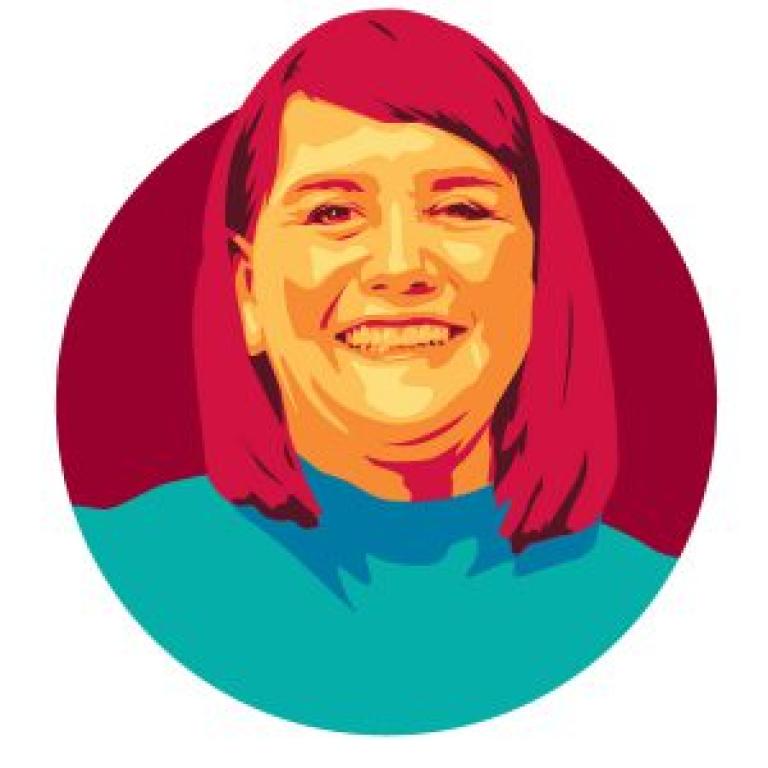 |
||
|
JENNIFER GEORGE |
RESEARCH INTERESTS: Connections among families, schools, and communities, as well as equity and inclusion, and embracing the variation between and amongst individuals, families, and communities
“My hope is that in joining FSOS, I will be able to explore how family is conceptualized and taught in early childhood and elementary programs,” she says. “My previous research was around gender role attitudes and the development of romantic relationships in adolescents.”
George’s journey to higher education has been a long path that started with very young parents, episodic poverty, and a love of learning that came from attending preschool.
“As a first-generation college student, I never lose sight of the foundation that educational institutions gave me but also the very clear social values, norms, and hierarchies they taught me,” she says. “I am acutely aware of the struggle that so many first-generation and underrepresented students encounter in higher education and I want to ensure that I am always giving value for the money.”
FUN FACT: What are you reading?
Currently, I am reading George by Alex Gino (for pleasure) and Parenting from the Inside Out by Siegel & Hartzell (for class prep).
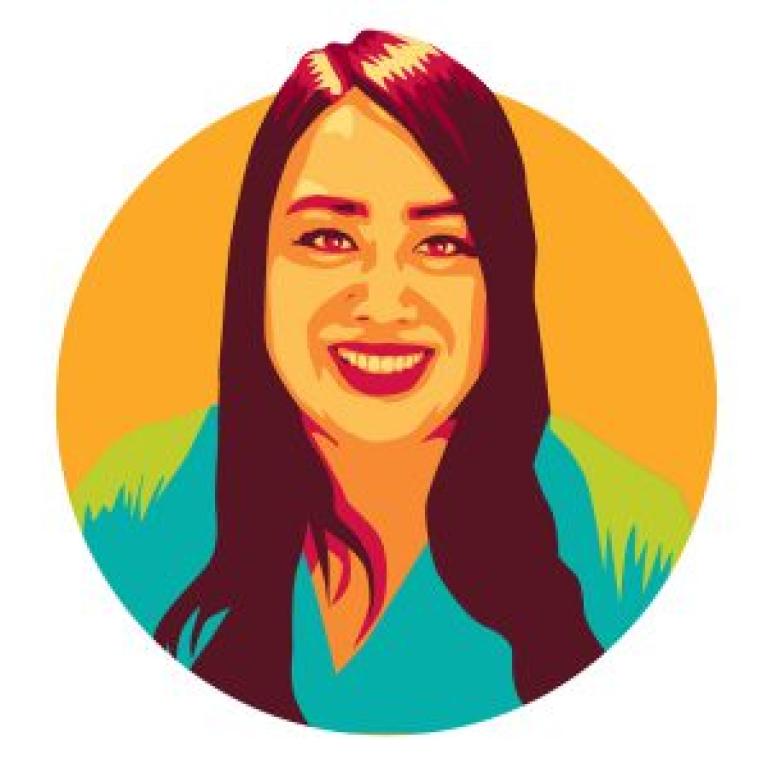 |
||
|
MICHELLE PASCO |
RESEARCH INTERESTS: Advancing methods to examine neighborhood environments, how neighborhoods impact adolescent development, and neighborhood and family influences on cultural processes and experiences (e.g., ethnic-racial identity, discrimination)
“Broadly, my research incorporates a culturally informed lens to understand how contextual factors influence lived experiences for Black, Indigenous, and people of color (BIPOC) youth,” she says.“I have particular interest in how neighborhoods that are racially, ethnically, and socioeconomically stratified influence developmental outcomes and processes, including ethnic-racial identity, discrimination, cultural socialization, and political socialization.
Her research interests stem from her own personal identity with her experiences as a first-generation college student, Filipina woman of color, and seeing firsthand the challenges (e.g., lack of investment, graffiti in public areas) and benefits (e.g., being surrounded by other immigrant families) growing up in an ethnically and racially concentrated neighborhood.
“These experiences fuel my commitment to disrupt systemic and oppressive barriers for marginalized populations, particularly BIPOC youth,” she says. “I am also committed to taking a strengths-based approach to my research.”
FUN FACT: If you could invite any figure—living or dead—to dinner, who would it be and why?
I would love to have dinner with Rupi Kaur. I have admired her poetry and illustrations for years and would love to talk to her about how she is able to project strength and vulnerability through her words.
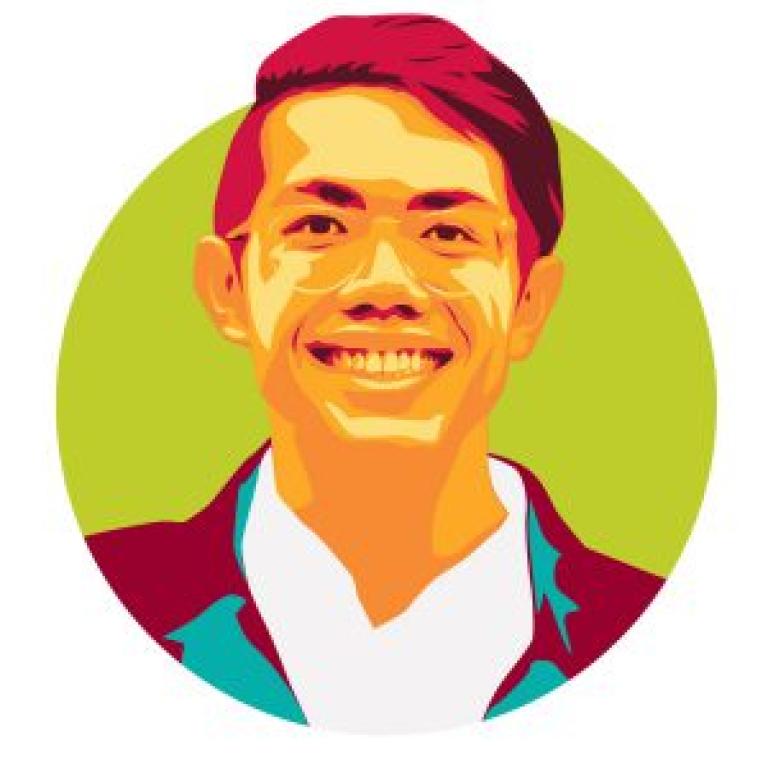 |
||
|
KAY SIMON |
RESEARCH INTERESTS: The experiences of sexual and gender minority (SGM) parent families and SGM youth as well as those from underrepresented racial-ethnic groups as they relate to identity development, parenthood and family life, experiences of prejudice, and health disparities
Currently, Simon is working on the Stories and Experiences of LGBTQ+ Families from Youth (SELFY) Project, which involved interviewing 51 youth, all of whom have an LGBTQ+ parent. This study was conducted under the guidance of their PhD advisor, Rachel Farr, and funded by
the William T. Grant Foundation. “The project ultimately hopes to uplift the voices of youth with LGBTQ+ parents, who are often an understudied and underrepresented group,” Simon says.
Simon grew up in Florida and Texas as a child and says being in the Southern U.S. as a queer youth of color was especially difficult. “With no role models and little representation, I felt completely alone and experienced a lot of bullying,” they say. “At the time I was also convinced that I could never have a family and that I would be forced to choose between having civil liberties and a family and being openly queer. Now, of course, I know that there are hundreds of thousands of LGBTQ+ parent families, many of whom live in the Southern U.S.”
FUN FACT: What is your favorite website?
Music and supporting indie artists has always been a big passion of mine, so if I had to choose a website I’d probably say bandcamp.com or a record label like dbldblwhmmy.com who represents some of my favorite artists.
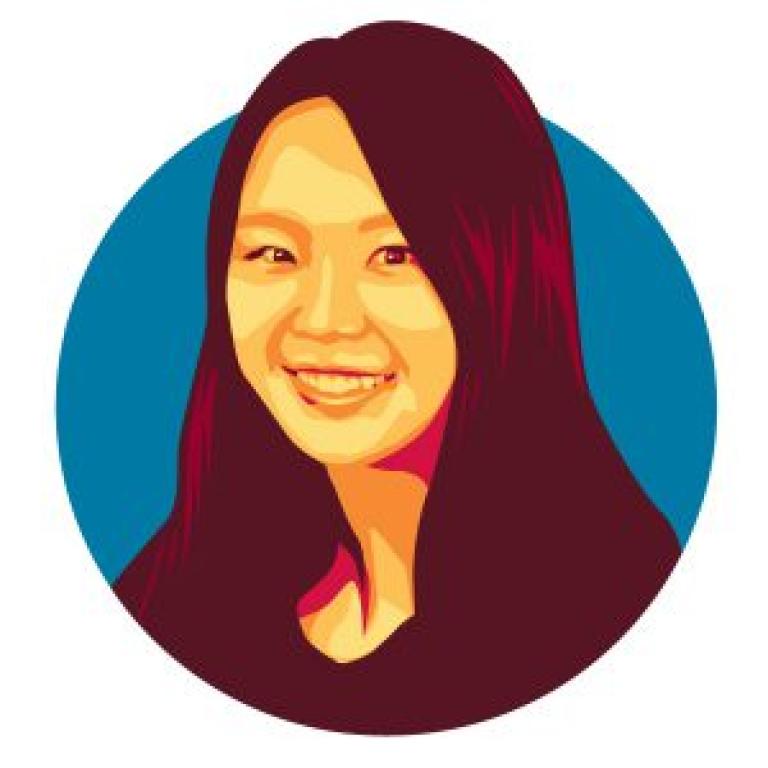 |
||
|
XIAORAN SUN |
RESEARCH INTERESTS: How adolescents and parents use smartphones, and how their smartphone use behaviors influence the family functioning and their well-being
“My research interest broadly lies in family systems processes and adolescent development, considerations of larger contexts in these processes, and applications of data science tools in family and developmental research,” she says.
Sun’s earlier work was mainly focused on the long-term implications of multiple family relationships (e.g., parent-child, sibling, and interparental) during adolescence for youth’s future life outcomes such as educational attainment, career success, and couple relationships, and on how cultural contexts shape these implications.
“Currently I am mainly using a research paradigm, Screenomics, where we have been collecting screenshots and associated metadata from participants’ smartphones every few seconds across months,” she says. “With this data, we have unprecedented opportunities to objectively observe and capture adolescents’ and parents’ smartphone use behaviors and, in combination with survey data, study how these behaviors may influence their mental health and family relationships.”
FUN FACT: What do you do in your downtime?
In my downtime I like talking to friends, physical activities (e.g., bouldering, surfing, hiking), exploring restaurants, and listening to and playing music.
Institute of Child Development
 |
||
|
KA I IP |
RESEARCH INTERESTS: Culture, children and adolescents’ mental health and the developing brain, and typical and atypical emotion regulation development
Ips’ teaching philosophy focuses on inspiring his students to be critical thinkers who can analyze information from different perspectives and are sensitive to diversity issues. At the Institute of Child Development (ICD), he will lead the DANCE (Development, Affective Neuroscience, Culture & Environment) Lab.
“I am most excited about and amazed by the supportive, collaborative, and intellectual environment at ICD,” he says. “I look forward to joining ICD and continuing my research to improve children and adolescents’ mental health and to promote diversity, equity, and inclusion work through my research, mentorship, teaching, and service.”
FUN FACT: If you could invite any figure—living or dead—to dinner, who would it be and why?
I would like to invite my grandmother, who passed away before I had a chance to meet her. I am hoping to learn more about our family history and her stories as a refugee fleeing Cambodia during the Khmer Rouge regime in the 1970s, and how our family resettled in Macau. I think her stories exemplify the power of resiliency. By learning more about my cultural heritage, I hope to further explore and develop my own ethnic identity.
School of Kinesiology
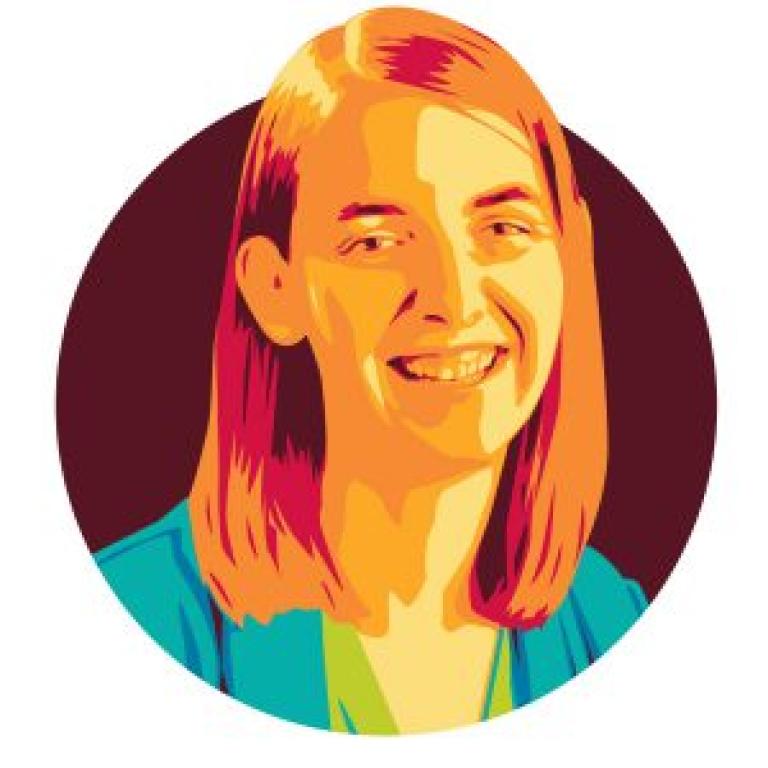 |
||
|
EMILY KRINGLE |
RESEARCH INTERESTS: A telehealth-delivered behavioral intervention that aims to reduce the amount of time that people with stroke spend sitting or sedentary using engagement in meaningful daily activities
“My research aims to improve our approach to health promotion as part of the rehabilitation process, particularly among adults with stroke-related disability from underserved populations,” she says.
Kringle says her experience in clinical practice drives her research interests. Before she pursued research, she practiced for five years as an occupational therapist—including three years at Fairview Acute Rehabilitation Center/MHealth—where the focus was helping people recover the ability to do basic daily activities (e.g., dressing, toileting, showering, simple meal preparation).
“During my time there, I was part of developing a hospital-to-home transition program where we spent a lot of time talking about the community and social activities that people wanted to do—attend their grandkids’ concert or ball game, volunteer at their place of worship, return to work, take a trip,” she says. “I spent a lot of time wondering whether they actually returned to these activities after they returned home. It seemed likely that returning to these activities required different supports for different populations, and I wanted to know how I could best support all of my patients,” she says. “The literature did not give me the answers I was looking for—and so I decided to step away from full-time clinical practice to pursue these questions.”
FUN FACT: What are you reading?
My Body Is Not A Prayer Request: Disability Justice in the Church by Amy Kenny and Upgrade by Blake Crouch
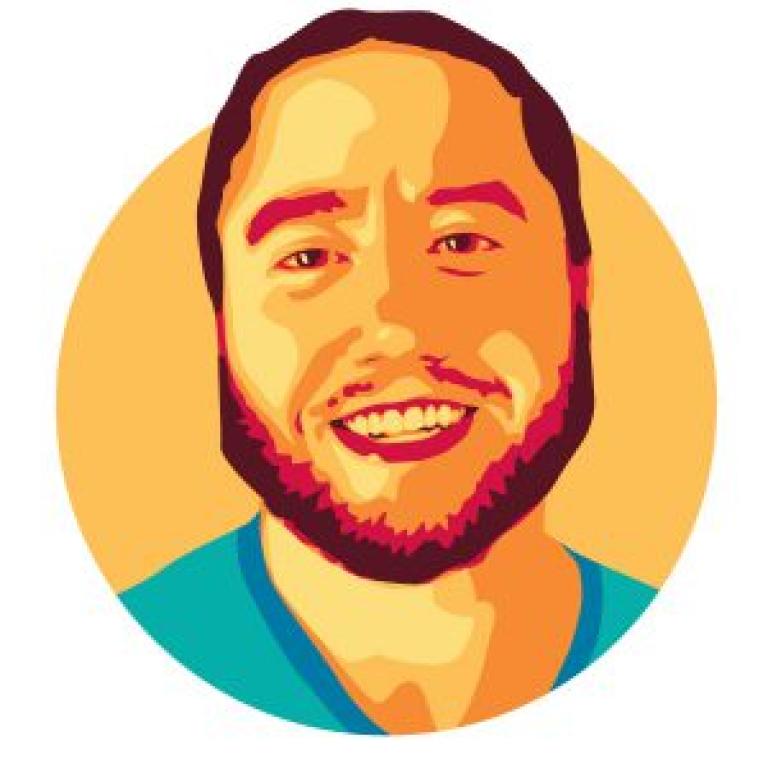 |
||
|
MITCHELL MCSWEENEY |
RESEARCH INTERESTS: Social entrepreneurship, innovation, sport for development, and livelihoods
McSweeney’s main research is conducted within the field of sport for development and peace, which is the intentional use of sport to achieve social and economic development goals. He explores how organizations, communities, and individuals, such as refugees, come up with and implement unique ideas using sport to achieve social goals such as social inclusion, and engage in entrepreneurship through sport to benefit their communities and their own day-to-day lives. “I approach my research often from a critical lens where concepts such as social entrepreneurship—while usually contributing to the lives of historically marginalized individuals—also may unintentionally maintain or perpetuate inequalities,” he says.
FUN FACT: What is your favorite website?
My favorite website is Reddit—for news and much more!
Department of Organizational Leadership, Policy, and Development
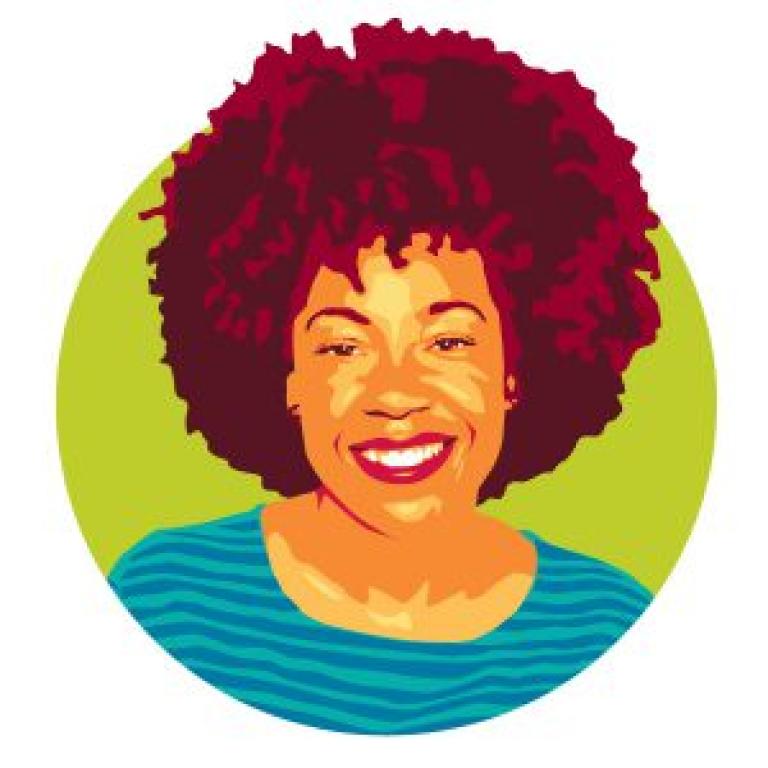 |
||
|
NICOLE DILLARD |
RESEARCH INTERESTS: A critical approach to identity and work. At the core of this agenda is research on mothering, work, gender, and organizations
“My initial interests in this line of research were personal, as I became a working mom while navigating my doctoral studies and wanted to understand theoretically, and provide a voice to the experiences of marginalization that myself and other Black mothers were experiencing,” she says. “I have furthered my commitment to this research because it is often lacking in the discipline and can provide valuable insight to help us understand various organizational dynamics.”
Dillard says she hopes to see her work progress through an expansion of identity-based research that still centers motherhood, race, and gender, but also includes a focus on other marginalized identities and experiences within work and organizational dynamics.
FUN FACT: If you could invite anyone, living or dead, to dinner, who would it be and why?
I would invite Audre Lorde to dinner. She was well before her time and had to navigate a lot of similar experiences that I connect with and that are aligned with my research on the intersections of identity. Plus, she was seemingly effortlessly confident and had an unapologetic sense of self, which I deeply admire.
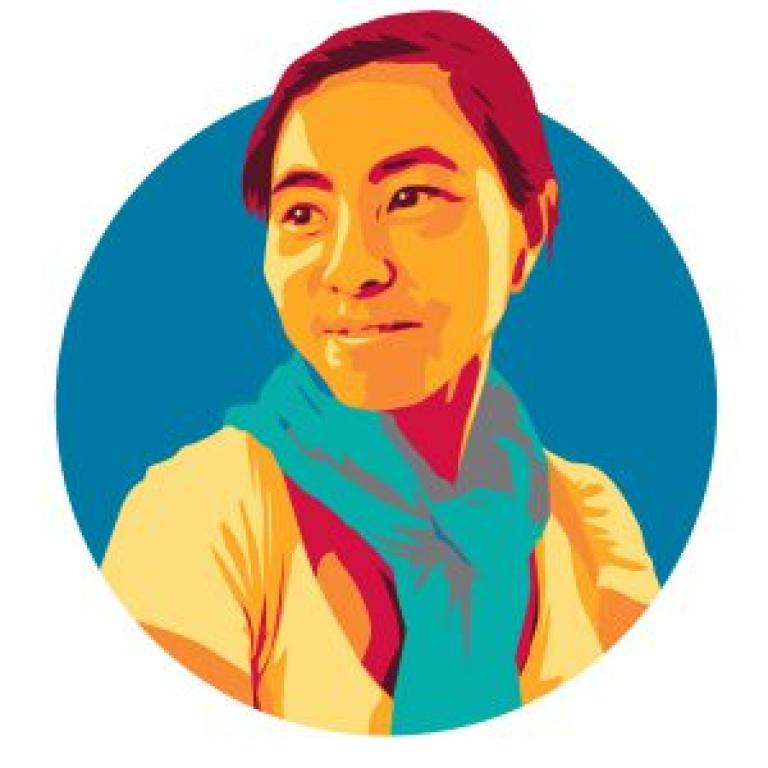 |
||
|
MEIXI |
RESEARCH INTERESTS: The relational, cultural, historical, political, and ethical dimensions of human learning and development in relation to macro sociopolitical structures such as transindigenous movements, neoliberalism, structural inequity, and how to collectively design for thriving, ethical futures with families and communities in Southeast Asia and North America
Meixi grew up across Hokchiu communities in Singapore and the Lahu tribe in northern Thailand, and this experience has driven her work. “Both visions of strength and experiences of injustice I experienced with these lands and families guide my ethical commitments to healthy and thriving futures in Indigenous Southeast Asia,” she says. “I have also been part of an education movement in México and intentionally work across Mekong and México in the design of land and family-based curriculum and evaluation, Indigenous stories, STEM education, and the continuance of land-based and otherwise theories of learning and human development.”
FUN FACT: What is the best piece of advice you’ve ever received?
From a remix of wisdoms from my grandma and other mentors, their best advice has been to come into place in a good way, to come with gratitude, to lift others up, for everyone has something to teach you, and you, them.
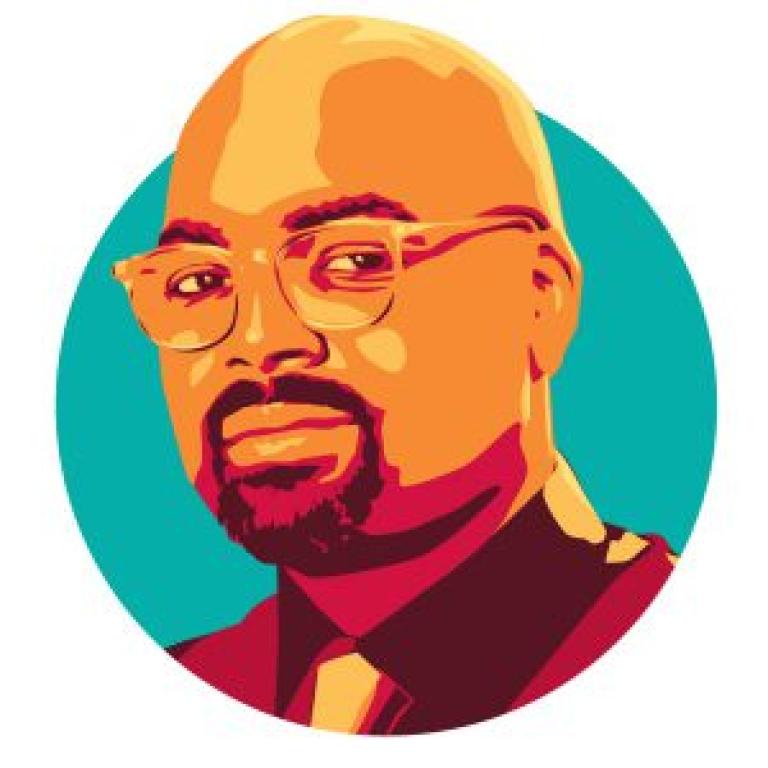 |
||
|
DARRIUS STANLEY |
RESEARCH INTERESTS: Black teachers (teacher diversity), culturally responsive, and community-engaged school leadership practice(s)
Stanley centers Black educational perspectives and philosophies in the preparation of aspiring school, district, and University leaders. He is a community-engaged scholar committed to the liberation of Black students, educators, and families.
“As a former K-12 educator and leader, I seek to further understand the experiences of Black educators and how they navigate organizational oppression,” he says. “More specifically, my work pays close attention to the cumulative effects of racism and sexism within school environments which perpetuate Black teacher turnover.”
A second strand of his research builds on his work with Black teachers and his time preparing equity-oriented educational leaders. “Specifically, I explore the possibilities of community-engaged leadership among aspiring and practicing educational leaders,” he says. “In this research strand, I center the philosophies, perspectives, practices, and commitments to liberation, which are embedded in Black, Indigenous, LatinX, and Asian communities, to expand our approaches to equity-focused educational leadership.
FUN FACT: What are you reading?
Ghosts in the Schoolyard: Racism and School Closings on Chicago’s South Side by Eve L. Ewing.
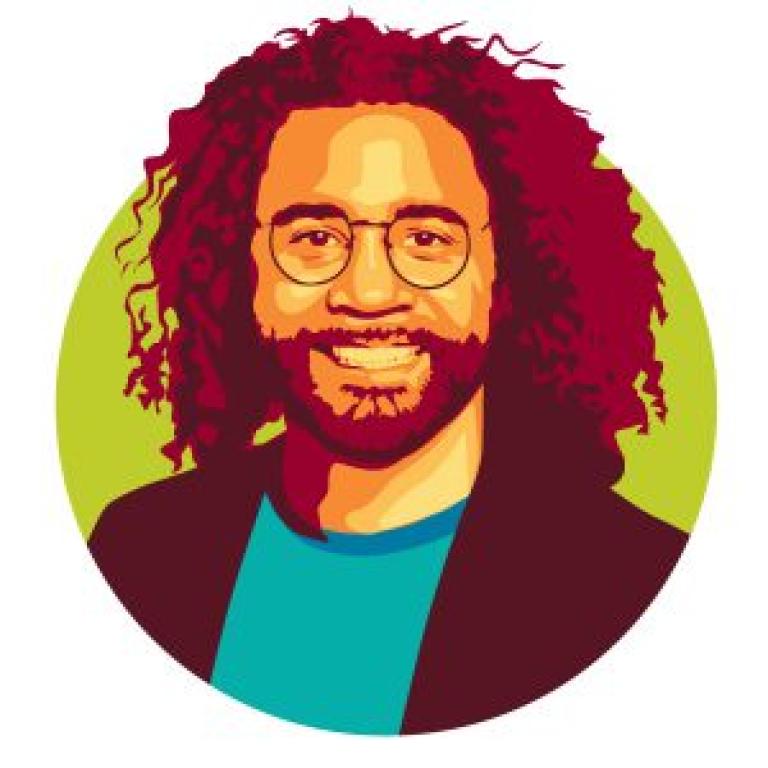 |
||
|
NATHANIEL (NATE) D. STEWART |
RESEARCH INTERESTS: Black, justice-oriented, and K-12 educators’ unique roles as policy activists and student agency shepherds
Stewart positions his scholarship, guided by critical quantification, anti-colonial epistemologies, and Black intellectual thought, to bolster the political and pedagogical activities of Black, Brown, and Indigenous educators, school leaders, and their allies.
“I am interested in educational justice policy actors’ strategies, knowledge co-creation, solidarities, and sustainment in movement spaces,” he says. “Freedom dreaming, the act of imagining beyond current oppressive realities, drives my interest in educational justice and equity in policy. I hold hope that Black, Brown, and Indigenous-led movements and collectives can obtain the power necessary to transform oppressive societal mechanisms.”
FUN FACT: What do you do in your downtime?
I enjoy hiking with my pup, gym workouts, singing, coalition-building, and participating in mutual aid.
School of Social Work
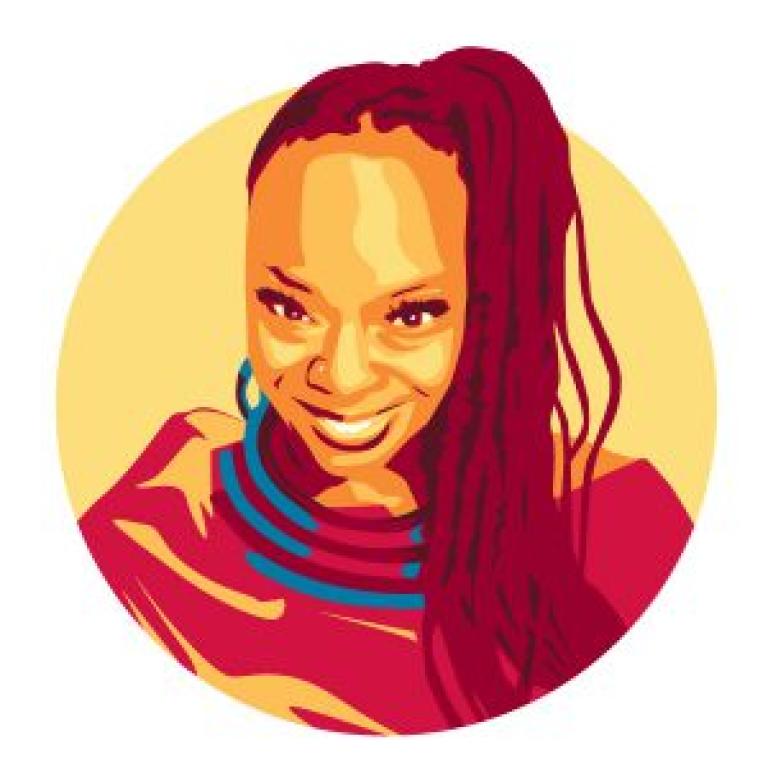 |
||
|
JOAN BLAKEY |
RESEARCH INTERESTS: Child advocacy, protection, and welfare; diversity, equity, and inclusion (DEI); justice and corrections; substance use and substance use treatment; trauma and trauma-informed care; and anti-racist and anti-oppressive practice within the social work profession
As the director of the School of Social Work, Blakey serves as the school’s chief administrative officer, with responsibility for programs and resources, personnel, budget development, fundraising, and administrative planning. She also provides leadership as an active scholar and by supporting research and innovative learning in the school.
“My research interests started out with trauma and substance abuse among parents involved with child protection or the criminal justice system. Most of these parents have extensive histories of trauma that affect their ability to navigate these systems, which often means they will lose custody of their children or get rearrested because neither of these systems are dealing with their complex histories of trauma, which is the root cause,” she says.
However, her focus has shifted to racial trauma among students, faculty, and staff with the death of George Floyd. While she was the dean of academic affairs at Tulane University, many issues related to race and social justice were brought to the forefront.
“So many students, faculty, staff, and other administrators who I was working with were having the same discussion—what it is like to be a person of color in a white institution,” she says.
Ultimately, institutions are losing out because they are not getting people’s full participation. “That limits the diversity of thought and diversity of experiences. We’re not the best we can be because we have members of the community that feel they can’t participate and fully show up,” she says.
While things are changing, the change is taking longer than expected. In the meantime, some students, faculty, and staff are being harmed in the system. Blakey says she is driven by the kind of education people are getting and she draws on personal experience. “I want to focus on that and what to do about it,” she says. “That’s what drives me.”
FUN FACT: If you could invite any figure—living or dead—to dinner, who would it be and why?
I would say Dr. Martin Luther King, Jr. He had a lot of ideas around race that resonate with me, but I think at the end of his life there were things he began to understand about race in a deeper way. I would want to talk with him about those things and what he has learned.
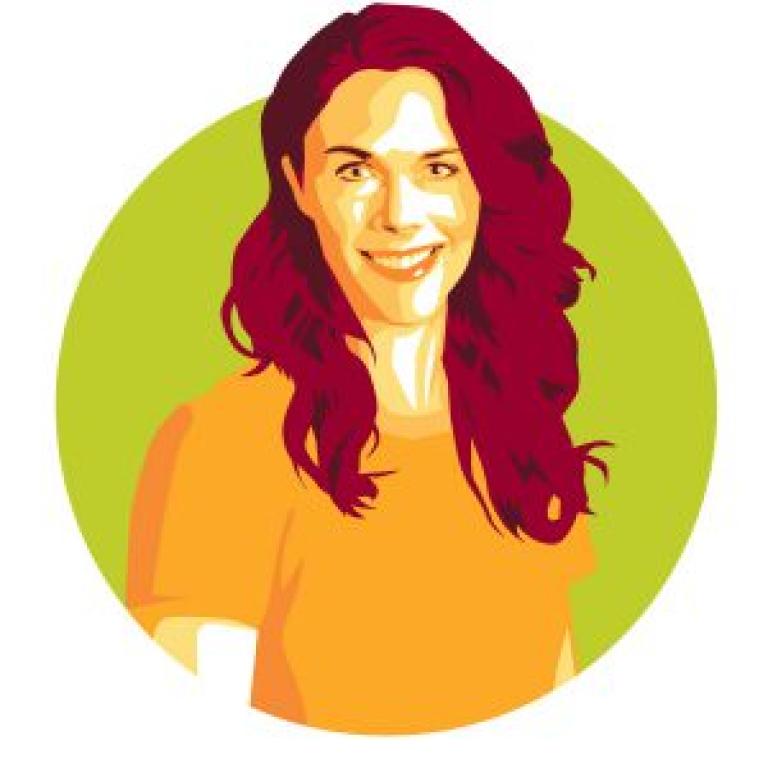
|
||
|
MARGUERITE (MARTI) DELIEMA |
RESEARCH INTERESTS: Elder financial exploitation and fraud targeting consumers of all ages
“I am interested in discovering what makes people more or less susceptible to scams and fraud, particularly the factors associated with the aging brain and changes in financial decision making,” she says.
DeLiema notes that for the first time in our history, by 2034 there will be more older adults in the U.S. than children and teenagers combined. “As a gerontologist and fraud researcher, I am interested in strategies to protect the retirement security of millions of aging Americans, including protecting them from financial exploitation and fraud,” she says. “I work with federal and national non-profit agencies to address questions such as, who is vulnerable to financial deception? What behaviors and attitudes place people at risk? What can people do to protect themselves as they age? What can the financial services industry do to keep people safe
from fraud and exploitation?”
FUN FACT: What is the best piece of advice you’ve ever received?
A fellow gerontologist reminded me that humans have added decades to our average life expectancy in less than a century. With all these extra years to live we have more time to accomplish goals and to pursue activities that are personally meaningful. So why are we always rushing from one thing to the next and trying to pack it all in? It’s OK to take life one day at a time and to use the advantages that longevity affords.
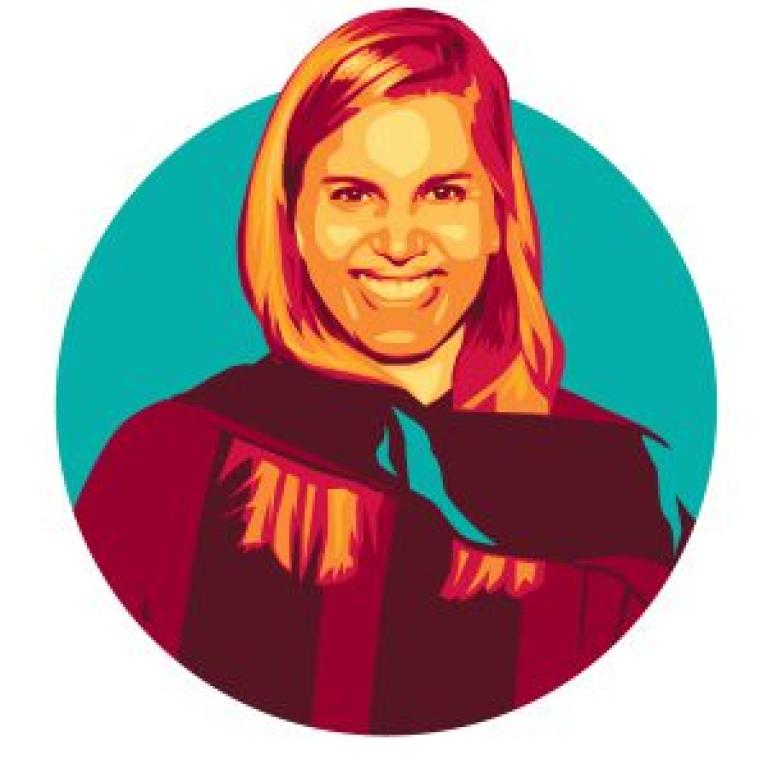 |
||
|
HANNAH MACDOUGALL |
RESEARCH INTERESTS: Health policy and the role of health systems in addressing social needs of communities
“My future research aims to address the impact of medical debt on rural residents and the role nonprofit hospital community benefit policies can play in lessening or eliminating such debt,” she says. “Additionally, I plan to examine nonprofit hospital financial assistance policies to understand their levels of generosity in relation to the
surrounding community’s needs.”
MacDougall says her research interests are driven by her strongly held belief that access to affordable and quality health care is a human right. “After working as a clinical social worker in numerous nonprofit hospitals and witnessing the myriad of ways our health care system fails patients and their families, I felt motivated to study health policy and fight for policy revision,” she says. “Specifically, I hope to be a part of scholarship that leads to policy changes that hold our health care system accountable to better serve low-income communities, Indigenous communities, and people of color.”
FUN FACT: What do you do in your downtime?
Most of my downtime is spent chasing around my two young daughters, spending time with my husband, being outside, biking, and reading
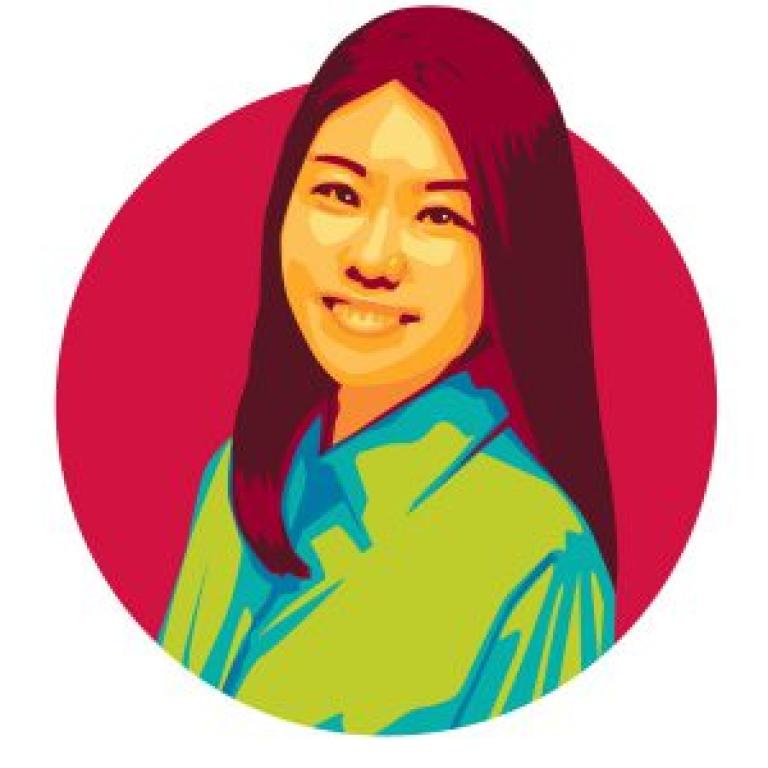 |
||
|
JIHEE WOO |
RESEARCH INTERESTS: Poverty, health disparities, job quality, material hardship, work-family interaction, and retirement
Woo has worked with low-wage workers throughout the past five years of her research. What she’s learned is that not only their low wages, but also other qualities of their low-wage jobs shape the unique stressors for them: a poverty or near poverty situation, lack of time and energy to spend with their families, and inability to save for retirement. “All these stressful experiences both inside and outside of work, in turn, lead to poor mental and physical health outcomes,” she says. “As an important social and economic determinant of health, job quality is a focal point of my research.”
FUN FACT: What are you reading?
Reading for fun is not really happening when I have to read a lot for my research. Every summer I make sure to spend time reading at least one book for fun. This summer I started reading Pachinko, a novel by Min Jin Lee, to not just entertain myself but at the same time to be educated about the history of the Korean people and motivated by their resilience, hope, and fortitude. I look forward to watching Pachinko on TV after finishing the book!
Story by Kevin Moe | Illustrations by Daniel Hertzberg